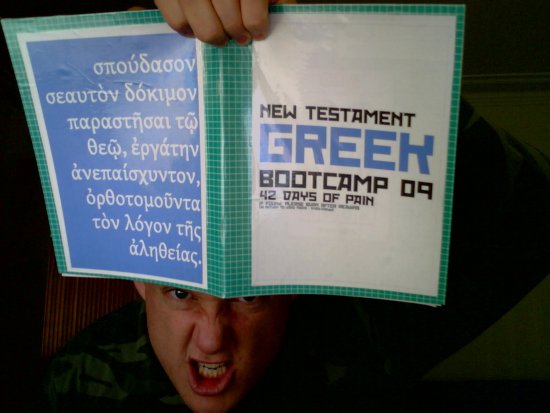I’ve got 42 days until my final New Testament Greek exam. It’s open book. That means the expectations are higher. Kinda packing darkies, but prepared to bust my gut in prep.

So the 42 day bootcamp began today. I’ve got my 96 page exercise book ready to roll. I’m wearing an army print t-shirt to mark the day. Lots of pain ahead… bring it!
Here’s my tally sheet that’s pasted in the front: PDF; Excel.






